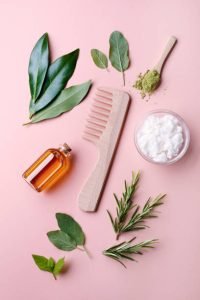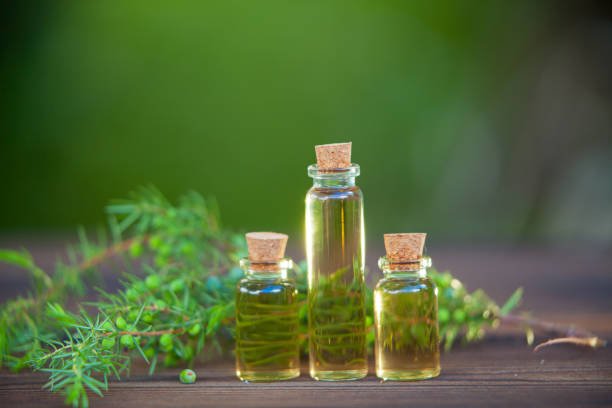Tea tree oil, also known as melaleuca oil, is an essential oil derived from the leaves of the tea tree plant (Melaleuca alternifolia), which is native to Australia. It has a pale yellow to clear color and a strong, medicinal scent.
Tea tree oil has been used for centuries by indigenous Australians for its medicinal properties. It is known for its antimicrobial, antiseptic, and anti-inflammatory properties. It contains various compounds, including terpinen-4-ol, which is believed to be responsible for its therapeutic effects.
Tea tree oil is commonly used topically for various skin conditions, such as acne, fungal infections (like athlete’s foot and nail fungus), insect bites, and dandruff. It can also be found in some oral care products, shampoos, and soaps.
It’s important to note that tea tree oil should not be ingested, as it can be toxic if swallowed. Additionally, some individuals may be sensitive or allergic to tea tree oil, so it’s recommended to do a patch test before using it on a larger area of the skin.

As with any natural remedy, it’s always a good idea to consult with a healthcare professional before using tea tree oil, especially if you have any underlying health conditions or are taking medications.
Tea tree oil has gained popularity for its potential health benefits. Here are some of the commonly claimed benefits of tea tree oil:
- 1. Antimicrobial properties: Tea tree oil is believed to have strong antimicrobial properties, which means it can help kill or inhibit the growth of bacteria, viruses, and fungi. It is often used topically to treat skin infections, acne, and fungal infections like athlete’s foot and nail fungus.
- 2. Anti-inflammatory effects: Tea tree oil is thought to have anti-inflammatory properties, which can help reduce redness, swelling, and inflammation associated with skin conditions like acne and eczema.
- 3. Antiseptic properties: Tea tree oil is considered a natural antiseptic, meaning it can help prevent infection in wounds and cuts. It can be used topically to clean and disinfect minor wounds.
- 4. Acne treatment: Tea tree oil is commonly used as a natural remedy for acne. Its antimicrobial and anti-inflammatory properties may help reduce acne-causing bacteria and inflammation, leading to improved skin condition.
- 5. Scalp and hair health: Tea tree oil is often used in hair care products due to its potential benefits for the scalp and hair. It may help treat dandruff, dry scalp, and itchiness, and promote healthy hair growth.
- 6. Oral health: Some studies suggest that tea tree oil may have antimicrobial properties that can help fight oral bacteria and reduce bad breath. It is sometimes used as an ingredient in natural mouthwashes and toothpaste.
It’s important to note that while tea tree oil has potential health benefits, it should be used with caution. It is highly concentrated and can cause skin irritation or allergic reactions in some individuals. It should always be diluted before use and a patch test should be done to check for any adverse reactions. It’s also recommended to consult with a healthcare professional before using tea tree oil, especially if you have any underlying health conditions or are taking medications.
Tea tree oil can be used in various ways for health purposes. Here are some common methods of using tea tree oil:
- 1. Topical application: Tea tree oil can be applied directly to the skin, but it should always be diluted with a carrier oil, such as coconut oil or olive oil, to avoid skin irritation. The general recommendation is to mix 1-2 drops of tea tree oil with 1 tablespoon of carrier oil. This diluted mixture can be applied to the affected area using a cotton ball or clean fingers. It can be used for treating acne, fungal infections, cuts, and wounds.

Credit: iStock by GettyImage - 2. Inhalation: Tea tree oil can be inhaled to help with respiratory issues like congestion, cough, or sinusitis. You can add a few drops of tea tree oil to a bowl of hot water and inhale the steam by covering your head with a towel. Alternatively, you can use a diffuser or vaporizer to disperse the oil into the air.
- 3. Mouthwash: Tea tree oil can be used as a natural mouthwash to help fight oral bacteria and reduce bad breath. Add a few drops of tea tree oil to a cup of warm water and use it as a mouthwash after brushing your teeth. Be careful not to swallow the mixture.
- 4. Hair care: Tea tree oil can be added to your shampoo or conditioner to promote a healthy scalp and hair. Add a few drops of tea tree oil to your regular shampoo or conditioner and use it as usual. It can help with dandruff, dry scalp, and itchiness.
- 5. Cleaning: Tea tree oil can be used as a natural disinfectant for cleaning purposes. Add a few drops of tea tree oil to a spray bottle filled with water and use it to clean surfaces, such as countertops, bathroom fixtures, or yoga mats.
Remember to always perform a patch test before using tea tree oil topically to check for any adverse reactions. If you experience any irritation or allergic reactions, discontinue use and consult a healthcare professional.

